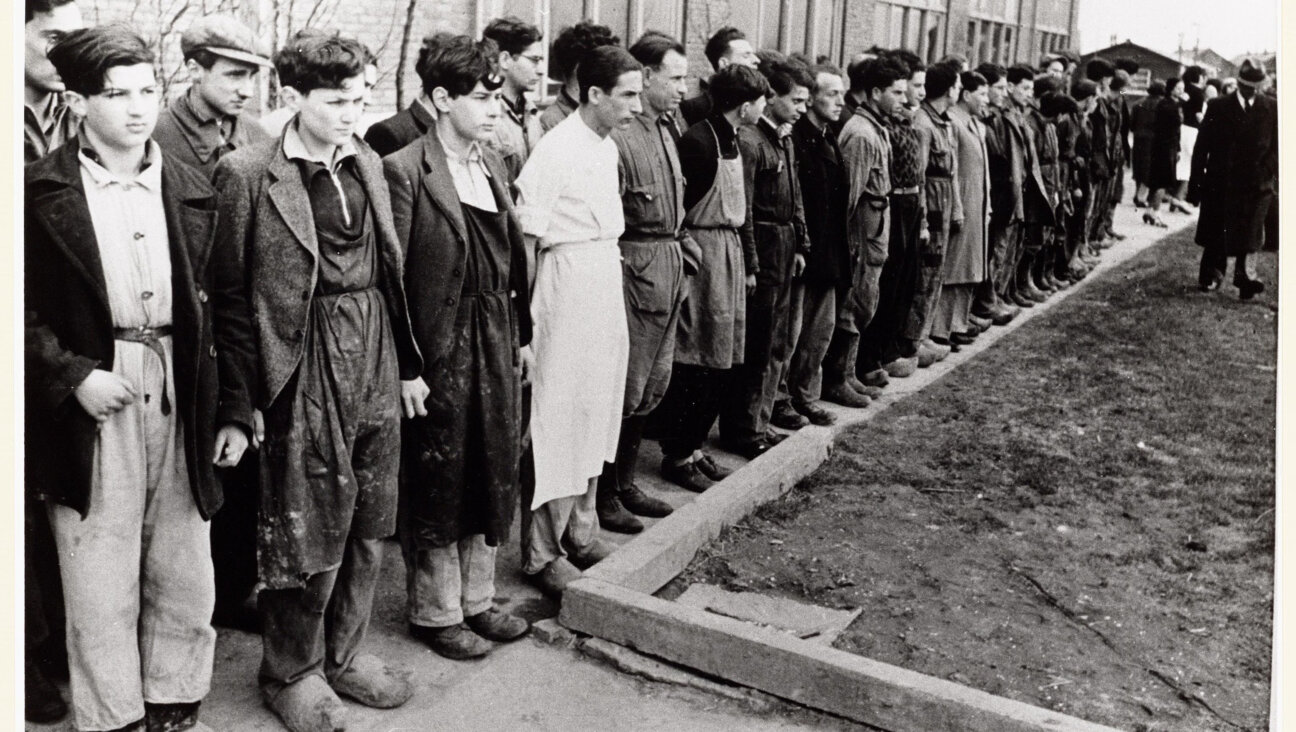Accepting the World
In Sophocles’s play “Ajax,” the eponymous hero exclaims to his son, “Lad, may you be more fortunate than your father, but like him in everything else!” This could well have been Isaac’s blessing for both Esau the hunter and Jacob the fire-keeper. This week’s portion, Toledot, is ostensibly the story of Isaac, but it concentrates on his two sons, which tells us more about Isaac than a straightforward chronicling of his life ever could.
Isaac started out promisingly. The only child of Abraham and Sarah, he was circumcised and later weaned with great celebration. When we next meet up with Sarah’s boy at the tender age of 37, however, his father has him tied down on an altar in a passive posture that could well be an icon of his life. Soon afterward, Isaac is married to his second cousin, a nice girl from the old neighborhood, courted for him by Abraham’s steward. Isaac and Rebekah never venture far from the area where Abraham chose to settle. On Isaac’s 60th, his 23-year-old wife gives birth to twins, and they are the ones everyone remembers, not him.
To say that Isaac was not his multifaceted father is an understatement. He is every bit as good, but ineffectual, and suffers a series of bad breaks. Unlike Abraham, Isaac does not grow or develop. He never masters his environment but instead is dependent on it, and his engagement with the world has no evident purpose other than slogging through daily life.
Isaac and his wife had some communication issues. During a difficult pregnancy, Rebekah learns from God that the siblings will be rivals and that the birthright of the firstborn belongs to the “younger,” Jacob. Rebekah never divulges this to her husband over the next century or so, although in fairness, neither does God. Nor do the contending brothers breathe a word about the deal they conclude over bread and pottage.
This reticence also holds for the intrigue of the two paternal blessings. Given the divine message to Rebekah, and her “bitterness of spirit” about the possibility that Jacob might marry a Hittite, a concern only because she knew he was going to be the next patriarch, it looks as if God had decided which brother would receive which blessing long before the incident in blind Isaac’s tent. God never bothered to tell him, but Isaac seems to suspect as much, or in any case resigns himself to it. Even as Isaac meditates, entreats and calls upon God recurrently, God speaks to Isaac precisely twice in his 180 years — on the slender side for a patriarch — and in the most general terms, minimally affirming the covenant made with his father.
Isaac’s great characteristic, at least in context, is that he accepts himself and his lot. It’s not all that surprising, because Isaac is nothing if not acquiescent and incurious, so there isn’t much for God to reveal to him — he already trusts in God and accepts whatever happens.
In his primitive, simple, personal belief, Isaac is, in effect, Dostoevsky’s pious idiot, whose surreal assent to an incomprehensible living God brings into sharp relief the strengths and weaknesses of early monotheism. For if monotheism was rational, elegant and aesthetically pleasing, its basic inspiration was at variance with the intricacies and opposing actions witnessed in common experience. Polytheism, on the other hand, was a sophisticated brand that offered a complex, complicated view of the world that neatly mirrored the fractured, amorphous ambiguities and subtleties of reality in order to make life comprehensible. Abraham had recognized that the problem with polytheism was not that it was wrong prima facie but that it was useless, or at any rate not more useful than the phenomena it was supposed to explain. Its uncompromising reasonableness is itself extravagantly unreasonable. There had to be a better, more economical, more essential theory.
When the Abrahamic tradition passes on to Isaac, it is now a living body, no longer the first principles intuited by its founder. Isaac’s task, as the indispensable but transitional custodial figure, is to hand on what he has been bequeathed, which is all he is capable of, and so the dynamic that constitutes his patrimony ossified, because he could not re-imagine it from its historic fundamentals, much less fashion it anew in his own milieu.
Had Jacob not entered upon the scene, the tradition would have stagnated. Isaac was ill prepared to address the primary questions pertaining to the spiritual aspect of the Jewish mission. Perhaps this is why he asks so little and, apart from making a living, receives even less — nothing to foreshadow things-to-come. However, nothing more is necessary. Isaac is told nothing, yet he is told everything. God’s being is visible in the world already and perfect in its realization, and more is learned of God as life advances.
The God of Isaac was very different from the God of Abraham and the God of Jacob. Isaac’s status, with its weaknesses and flaws, was so ordinary as to not be remarkable. Perhaps it would be better to think of it as the human condition..
Dimitri Milch lives in Stony Brook, N.Y.















